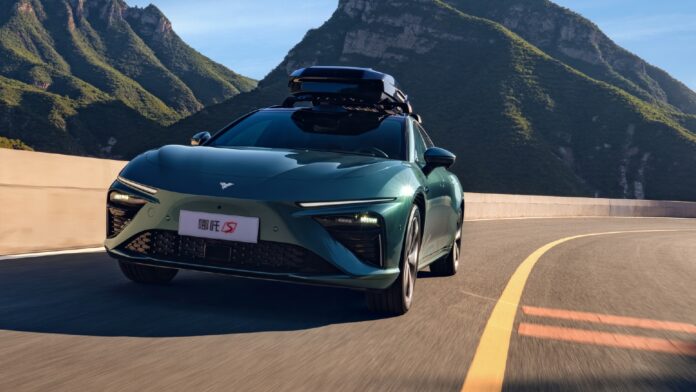Neta Auto, the Chinese electric vehicle manufacturer facing mounting financial troubles, secured a 10 billion Thai baht (215 million USD) credit line in Thailand last week. This development appears to be the company’s last lifeline amid a deepening debt crisis that has seen its domestic operations grind to a halt.
The Thai market opportunity comes at a critical moment for Neta. Despite publicly denying rumors about disbanding its R&D team, the reality of the company’s Shanghai headquarters tells a different story. Chinese media outlet Sina’s recent on-site visit revealed a troubling scene: nearly empty offices during working hours, with the few remaining employees seemingly disengaged, spending time on their phones or gathering for cigarette breaks well before closing time.
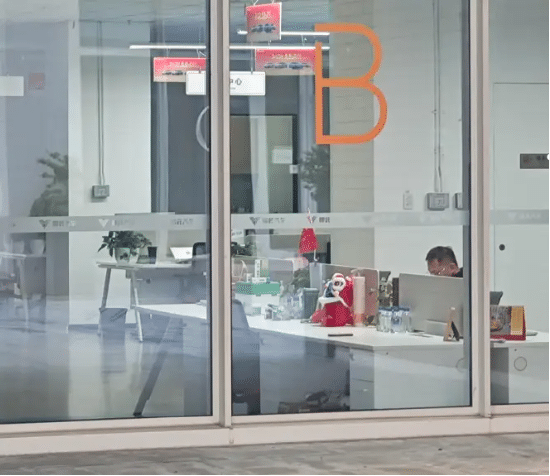
“Many suppliers have come to demand payment in recent weeks,” revealed one headquarters employee who requested anonymity. “The company is currently negotiating solutions with suppliers, many of whom have been owed money for months or even a year or two. Given our dire situation, it’s unclear who will actually get paid.”
Multiple employees confirmed that Neta has been paying many workers only half their salaries, with some receiving only Shanghai’s minimum wage. “Many people have already left, and those who remain are mostly just going through the motions—very little actual work is being done internally,” one employee admitted.
The 10 billion Thai baht credit facility represents a crucial financial injection for a company drowning in debt. Industry insiders estimate that Neta’s total liabilities are approaching 10 billion yuan (1.4 billion USD), creating significant obstacles to securing new investments. Earlier this year, Neta’s parent company, Hozon New Energy Automobile, announced plans for a Series E funding round of 4-4.5 billion yuan, with a lead investor expected to contribute approximately 3 billion yuan. However, these funds have yet to materialize.
“Everyone—suppliers, employees—is waiting for financing to revitalize the company,” an employee explained. “Whether it’s debt-to-equity conversions for suppliers or employees accepting pay cuts, everyone is hoping for rescue capital.”
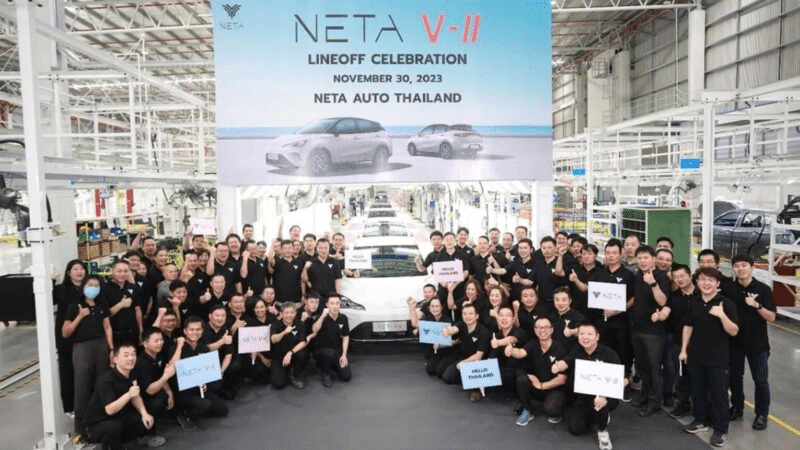
The company’s Thailand push comes as its domestic operations have largely collapsed. Neta’s three major factories in China have reportedly shut down, while social media posts show direct sales stores closing in multiple cities, including Nanjing, Shanghai, and Sichuan.
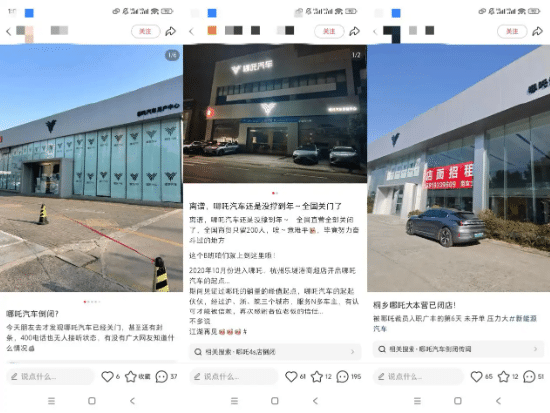
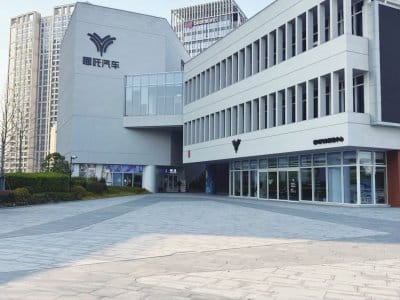
Neta’s financial troubles are well-documented in its Hong Kong Stock Exchange prospectus, which revealed accumulated losses of approximately 18.373 billion yuan (2.56 billion USD) between 2021 and 2023. Even in 2022, when Neta briefly topped the sales charts among China’s EV startups with 152,000 vehicle deliveries, the company still couldn’t stem its losses.
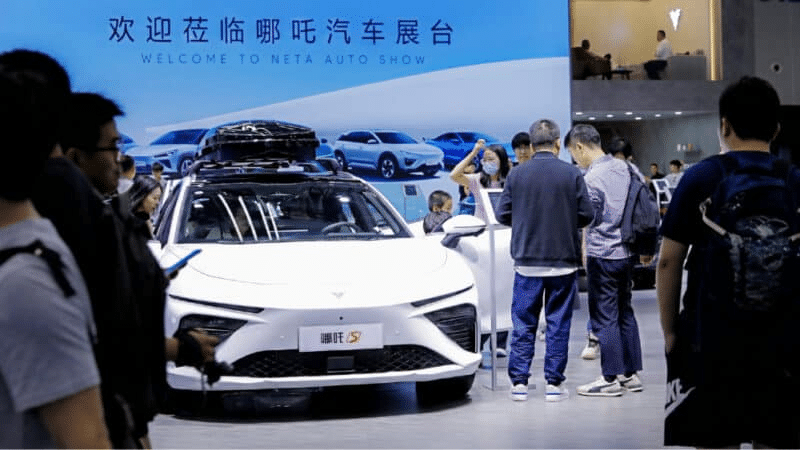
The Thailand credit line represents a strategic pivot toward international markets, aligning with founder and chairman Fang Yunzhou’s reform plan announced late last year. In an internal letter, Fang outlined six significant reforms, focusing on overseas markets and products with positive profit margins, aiming to achieve positive gross margins by 2025 and overall profitability by 2026.
From a sales perspective, Neta has been in trouble this year domestically. According to China EV DataTracker, its January sales decreased by 98% year-on-year, and in February, it sold fewer than 400 cars.
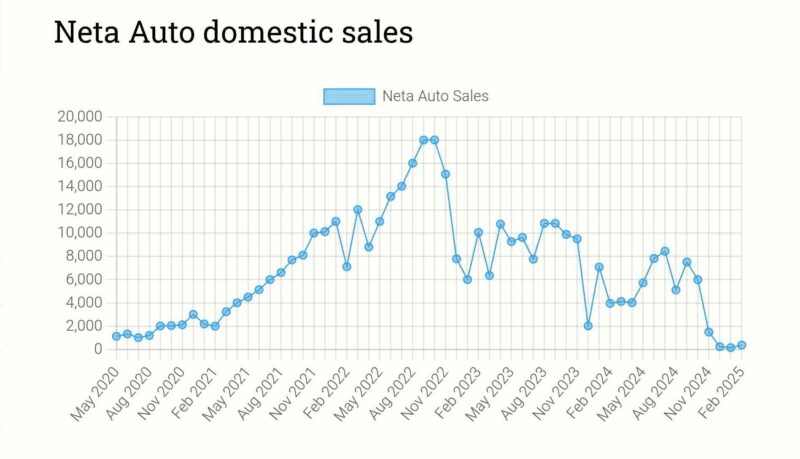
Compounding the company’s troubles, Neta recently lost key technical talent, with CTO Dai Dali reportedly joining Chery Automobile and autonomous driving head Wang Junping moving to SenseTime.
As creditors circle and operations sputter, the question remains whether Neta’s Thailand lifeline will provide enough breathing room to rescue a company teetering on the edge of collapse or merely delay what increasingly looks like an inevitable fall.
Source: Sina
